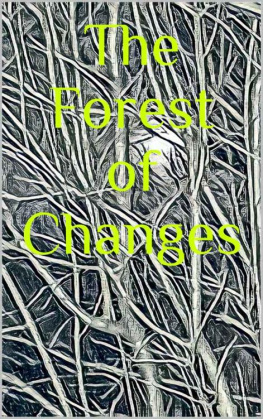Christopher Boehm - Hierarchy in the Forest: The Evolution of Egalitarian Behavior
Here you can read online Christopher Boehm - Hierarchy in the Forest: The Evolution of Egalitarian Behavior full text of the book (entire story) in english for free. Download pdf and epub, get meaning, cover and reviews about this ebook. year: 1999, publisher: HarvardUP, genre: Politics. Description of the work, (preface) as well as reviews are available. Best literature library LitArk.com created for fans of good reading and offers a wide selection of genres:
Romance novel
Science fiction
Adventure
Detective
Science
History
Home and family
Prose
Art
Politics
Computer
Non-fiction
Religion
Business
Children
Humor
Choose a favorite category and find really read worthwhile books. Enjoy immersion in the world of imagination, feel the emotions of the characters or learn something new for yourself, make an fascinating discovery.

- Book:Hierarchy in the Forest: The Evolution of Egalitarian Behavior
- Author:
- Publisher:HarvardUP
- Genre:
- Year:1999
- Rating:4 / 5
- Favourites:Add to favourites
- Your mark:
- 80
- 1
- 2
- 3
- 4
- 5
Hierarchy in the Forest: The Evolution of Egalitarian Behavior: summary, description and annotation
We offer to read an annotation, description, summary or preface (depends on what the author of the book "Hierarchy in the Forest: The Evolution of Egalitarian Behavior" wrote himself). If you haven't found the necessary information about the book — write in the comments, we will try to find it.
Hierarchy in the Forest: The Evolution of Egalitarian Behavior — read online for free the complete book (whole text) full work
Below is the text of the book, divided by pages. System saving the place of the last page read, allows you to conveniently read the book "Hierarchy in the Forest: The Evolution of Egalitarian Behavior" online for free, without having to search again every time where you left off. Put a bookmark, and you can go to the page where you finished reading at any time.
Font size:
Interval:
Bookmark:
HIERARCHY IN THE FOREST
The Evolution of
Egalitarian Behavior
Christopher Boehm
HARVARD UNIVERSITY PRESS
Cambridge, Massachusetts
London, England
Copyright 1999 by the President and Fellows of Harvard College
All rights reserved
Printed in the United States of America Second printing, 2001
First Harvard University Press paperback edition, 2001
Library of Congress Cataloging-in-Publication Data
Boehm, Christopher.
Hierarchy in the forest : the evolution of egalitarian behavior Christopher Boehm.
p. cm.
Includes bibliographical references and index.
ISBN 0-674-39031-8 (cloth)
ISBN 0-674-00691-7 (pbk.)
1. Human evolution.2. Social evolution.
3. Hunting and gathering societies.4. PrimatesEvolution.
5. Social evolution in animals.6. Political anthropology.
I. Title.
GN281.4.B64 1999
599.938dc21 99-24035
For my father, Dwight Handforth Boehm
To one who is living ones life as a democrat, egalitarianism is a topic that affects not only the head, but the heart. My heart was in this book, not only in the research that underlies it, but in its writing. For egalitarianism, as opposed to actual equality, is intrinsic to the democracy that many people on this planet enjoy and often take for granted. We democrats live in societies that define us as political equals, and in spite of voter apathy and predatory lobbies we continue to wield our votes: the collective voice of the people continues to be, ultimately, powerful. It is this essential political leverage in the political decision-making process that keeps alive human freedom and human rights as we know them, and I shall argue that this type of political stance is quite ancient.
We participate in this type of political leverage because we want to keep a say in our own governance, but, more basically, we exert it because we are suspicious of all governance and wish to limit the powers of those who lead and may try therefore to rule. To a democrat the power of centralized government, be it national or local, is a perpetual threat to the personal autonomy of its citizens, and ultimately it is the potential for rebellion by the rank and file that keeps our personal autonomies intact. We knowingly make a sensible compromise between maximization of personal freedom and the needs of a nation that must keep law and order and prevent civil war. Having made this implicit compromise, we tend to be vigilant about our rightswith good reason.
Our earliest precursor, in this respect, may well have been an African ape living some 5 to 7 million years ago. This vanished ancestral hominoid was likely to have formed political coalitions that enabled the rank and file, those who otherwise would have been utterly subordinated, to whittle away at the powers of alpha individuals whose regular practice it was to bully them. Our direct evolutionary precursor was a human physically just like ourselves, who lived in the Late Paleolithic and possessed an egalitarian ethos and an egalitarian political order similar to those of present-day hunting bands who have remained nomadic.
While this book mainly looks to the evolutionary origins of egalitarianism, and to its practice among extant foragers and the tribesmen who succeeded them, I have also included, in the next to last chapter, a more adventurous hypothesis about the natural selection of altruistic traits. This hypothesis would hold only if egalitarian society and the moral communities that made it possible were ancient, and if my speculations about selection mechanisms were credible. With respect to the possible (I think probable) evolution of genetic altruism in humans, I expect to raise considerable controversy among those who are biologically inclined. I can present no smoking gun, but rather a set of circumstances that could have favored a combination of enhanced group selection and effective suppression of free-riders. With respect to the overall evolution and phenotypic expression of political rebelliousness, I think I am on much firmer ground, and I present those hypotheses with confidenceeven though I, like anyone else who tackles the Paleolithic, will of necessity be operating by means of triangulation when it comes to the social and political life of earlier humans.
This book is not just about politics, then, but about the human capacity for altruism and also about morality more generally, about the moral communities in which humans lived prehistorically and especially about the political side of morality. The idea of people living morally as political equals is a beautiful one, but in an important sense it seems to go against human naturea nature that leads, quite naturally, to interpersonal domination and to the formation of social dominance hierarchies, with alpha individuals presiding over them. My main hypothesis is that in holding onto their personal autonomies, the collective weapon of the rank and file has been their ability to define their own social life in moral terms, and to back up their thoughts about political parity with pointed actions in the form of collectivized social sanctioning. Egalitarian society would never have appeared in the absence of moral communities, and it is possible that prehistorically they emerged at the same time.
In a sense, I am writing about the roots of democracy, and at times I shall depart from the historical-evolutionary context to comment on egalitarianism as it moved into larger societies: tribal republics, and both ancient and modern democracies. With respect to intentions, at least, the communist enterprises that have absorbed the world in this century are considered as experiments that were based on a tragically faulty assessment of human nature. But the main object of the book is to explain the political dynamics that make egalitarian societies possible at all levels, and to tie these dynamics to a human nature that definitely is in need of further definition and explanation.
My intellectual debts are many, and profound. In 1978 at Northwestern University, the late Donald T. Campbell suggested that he and I co-author a speculative paper that would explore possible biological bases for politically democratic behavior. The idea seemed fascinating, yet, to a cultural anthropologist, a bit far-fetched. Eventually I did pursue it, and increasingly I was able to conceive of political egalitarianism in an evolutionary context. That vision was strengthened when, in 1984, I began to study wild chimpanzees in the field. Without the chimpanzees, I would not have written this book about hierarchy in the forest, so in that context I must also thank Jane Goodall for permitting a cultural anthropologist to come to Gombe, and for generously training me in ethological field techniques and concepts.
In the summer of 1981, a fellowship from the National Endowment for the Humanities enabled me to spend some time thinking about why humans living in bands and tribes are so consistently egalitarian, and about the evolutionary forces that might have contributed to this pattern. At that time, I asked the Harry Frank Guggenheim Foundation for assistance in examining the vehement insistence of hunter-gatherers (and tribesmen) everywhere that they must live as political equals, and it was Guggenheim funding for a major ethnographic survey that enabled me, in 1982, to seriously begin an enterprise that now has spanned almost two decades. I thank the foundation, particularly Robin Fox and Lionel Tiger, who helped to orient its funding strategies, for taking a chance on a project that of necessity was to be based on slim ethnographic evidence. I also thank Christoph Antweiler of the German Anthropological Society for inviting me to a 1989 conference at which egalitarianism was an important part of the subject matter, and also the Department of Anthropology at Emory University for inviting me to its Mellon Foundation Symposium on Egalitarian Behavior, which took place in 1995 in Atlanta. Finally, the University of Southern California provided a sabbatical in 1998 that assisted in writing this book.
Next pageFont size:
Interval:
Bookmark:
Similar books «Hierarchy in the Forest: The Evolution of Egalitarian Behavior»
Look at similar books to Hierarchy in the Forest: The Evolution of Egalitarian Behavior. We have selected literature similar in name and meaning in the hope of providing readers with more options to find new, interesting, not yet read works.
Discussion, reviews of the book Hierarchy in the Forest: The Evolution of Egalitarian Behavior and just readers' own opinions. Leave your comments, write what you think about the work, its meaning or the main characters. Specify what exactly you liked and what you didn't like, and why you think so.








